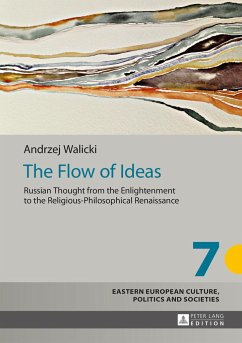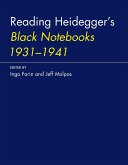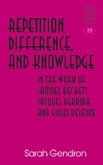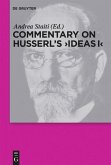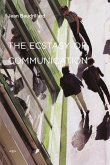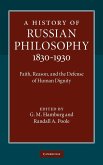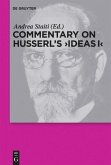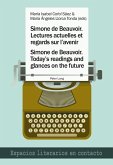This history of Russian thought was first published in Polish in 1973 and subsequently appeared 2005 in a revised and expanded publication. The current volume begins with Enlightenment thought and Westernization in Russia in the 17th century and moves to the religious-philosophical renaissance of first decade of the 20th century. This book provides readers with an exhaustive account of relationships between various Russian thinkers with an examination of how those thinkers relate to a number of figures and trends in Western philosophy and in the broader history of ideas.
«Overall, this is an extremely useful contribution to the literature on Russian thought.»
(George Gilbert, European History Quarterly 47(2) 2017)
«The beauty of good books about the history of ideas is that they offer new insights and add life to history proper. And a rich transnational context makes the experience of reading such works even more pleasurable and rewarding. This is the case with Walicki's enormous undertaking.»
(Anton Fedyashin, Slavic Review vol. 75, no. 3, 2016)
«Insgesamt stellt The Flow of Ideas aber eine hervorragende und stets verlässliche Einführung in die russische Ideengeschichte dar. Nicht nur Walickis tiefgreifende Kenntnisse des russischen Materials, sondern auch sein Vermögen, russisches philosophisches Denken in einen europäischen geistesgeschichtlichen Rahmen zu stellen, sind schwer zu übertreffen. Dieses Buch wird zweifellos für lange Zeit das maßgebliche Werk zur neueren russischen Ideengeschichte bleiben.»
(Martin Beisswenger, JGO 66/2018)
(George Gilbert, European History Quarterly 47(2) 2017)
«The beauty of good books about the history of ideas is that they offer new insights and add life to history proper. And a rich transnational context makes the experience of reading such works even more pleasurable and rewarding. This is the case with Walicki's enormous undertaking.»
(Anton Fedyashin, Slavic Review vol. 75, no. 3, 2016)
«Insgesamt stellt The Flow of Ideas aber eine hervorragende und stets verlässliche Einführung in die russische Ideengeschichte dar. Nicht nur Walickis tiefgreifende Kenntnisse des russischen Materials, sondern auch sein Vermögen, russisches philosophisches Denken in einen europäischen geistesgeschichtlichen Rahmen zu stellen, sind schwer zu übertreffen. Dieses Buch wird zweifellos für lange Zeit das maßgebliche Werk zur neueren russischen Ideengeschichte bleiben.»
(Martin Beisswenger, JGO 66/2018)

